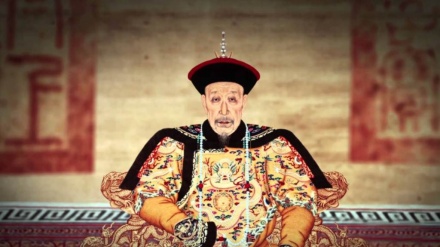Iranian stories and fables (136)
In this episode we continue the rest of the story of the Bogus Caliph (Khalife-ye Qollabi in Persian) chosen from the One Thousand and One Nights.
We said most names in the collection of One Thousand and One Nights stories are compound ones and have mostly connotative meanings. We set examples for you from this book. We said the name Shahrzaad is comprised of two words, Shahr meaning city in Persian and zaad meaning create. This name in Persian means City creator or the one who has created the city. Thus we realize that Shahrzaad is the one who makes the city come to life, or revives the city, and she does at the end of the story. She is a magical story teller who transforms the dictatorial king of a land and so the city is created again. And now the third example could be Shahriyar in Persian meaning the helper of the city. If we accept that Shahriyar is a king who is reactionary, scares people and kills a woman every night and makes others mournful. Therefore he is ironically called the helper of the city.
Some other researchers believe that the main meaning of the name Shahriyar is a king who is older than other kings of his era.
And as they say, life is short and art is long, so we have to wrap up our discussion and skip to the next part of our program, telling the rest of the story of the bogus caliph. We hope you'll enjoy it.
We said that once upon a time there was a caliph called Haroun al-Rashid who set out from his palace, along with his vizier, Jafar al-Barmaki, and a swordsman in order to see what was happening in the city under his rule. They all took off their royal clothes and dressed like ordinary citizens, in order to stay incognito. They went on and on until they reached a river bank where they spotted a ship. The people said it belonged to the caliph. This made the real caliph and his companions shocked. Therefore they decided to come back to the river the same night to see whom the ship belonged to. But the following night when the trio sailed to the river along with the boatman, the soldiers of the bogus caliph arrested them, but as the trio introduced themselves as traders, they let them in the palace and the bogus caliph served them with different foods and drinks. While they were in the palace they were witness to the fact that the bogus caliph for several times tore up his royal clothes as he heard musicians playing and wore new clothes and when Haroun al-Rashid asked him why he did so, he had answered that it was from the property he had gained by his attempts. He then said that he had recognized Haroun al-Rashid, the caliph, his vizier Ja'far Barmaki and his swordsman Masroor. The bogus caliph then started telling his life story, telling them that he had married Ja'far's sister Donya. However once he left home to play music and sing for a stranger, despite his promise to Donya not to leave home.
And now the rest of the story.
Reaching lady Zobaideh's house, the maidservants brought Mohammadali musical instruments to play. First of all he took Oud in his hands and played it beautifully. Then he started singing. After a about one or two hours of singing for Lady Zobaideh, Mohammadali left the house and went home.
As Mohmmadali arrived home, his wife had come back from the bathroom.
Seeing that his wife was furious, Mohammadali told her the entire story. But the more Mohammadali tried to persuade his wife that he was not at fault, the more his wife became angry.
So after a long debate between Mohmmadali and his wife, Donya said:
"Behead this unfaithful man! He is liar and I don't want to live with him!"
The executioner was about to cut off Mohammadali's head that he went to Donya and reminded her of the happy days they had together and he repeatedly swore that he had done nothing wrong. However Donya didn't listen to what Mohammadali said and ordered the executioner to do his job.
This time Donya's servants and maidservants came in and demanded her not to behead her husband. Thinking for a while, Donya asked the executioner not to cut off Mohammadali's head. She then told Mohammadali:
"It was just for the sake of my servants that I let you live. I do something that you never forget what you did to me. Now take some lashes and then leave my house forever."
Then the executioner started beating Mohammadali with lashes. He then threw Mohammadali out of the house.
Mohammadali said that since the day he separated from Donya, he realized that rich people could do whatever they want, so he went to his jewelry store, sold all his jewels, and used the money to build a palace, and employed lots of servants. Yet he still loved Donya, his wife, and missed her a lot. He also asked his men to take him to river Tigris and tell them that whoever sails across the river at the same time he was, he would be executed. He then said that it was for a year that he did such an entertainment, in order to forget his sorrows.
As he was telling his story, he burst into tears saying that he could not forget about his beloved wife Donya.
AE/ MD/EA


